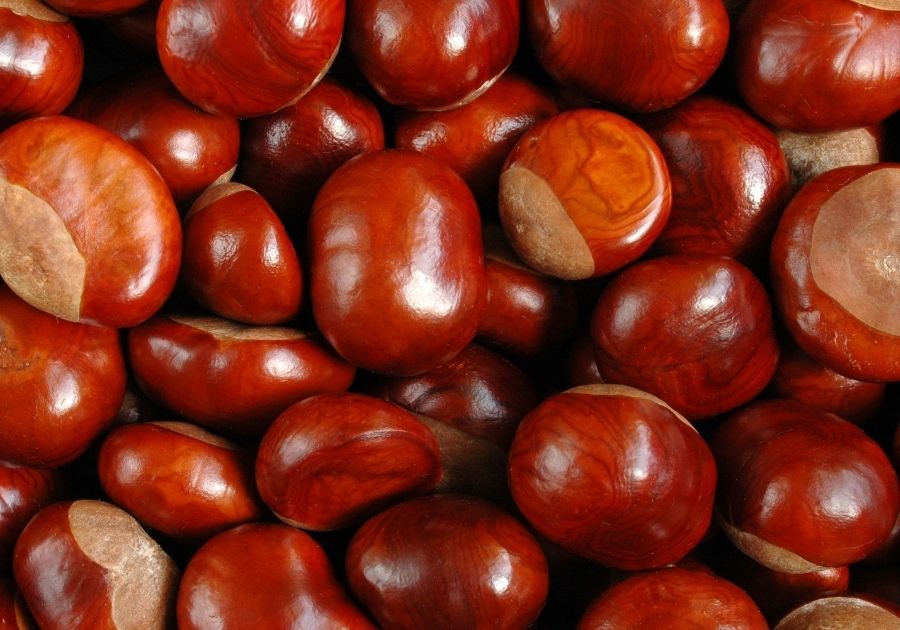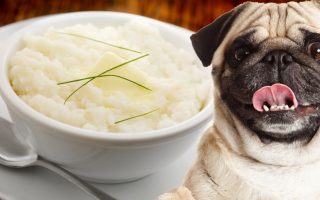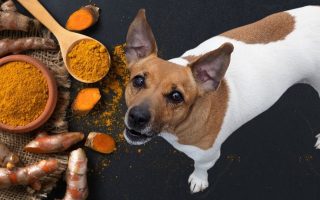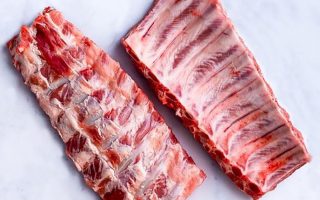Nuts generally are good for human consumption, but can dogs eat chestnuts?
This article explores everything you need to know before feeding chestnuts to your pup.
What are Chestnuts?
Chestnuts are edible fruits of deciduous unique nut-bearing trees in the genus Castaneda of the beech family Fagaceae.
They are native trees to temperate regions of the Northern Hemisphere and grow in Asia and Europe.
They are one of few nuts that are fruits as opposed to being seed too and grow in clusters of up to seven nuts in a spiny husk.
There are four main types of chestnuts: European, Japanese, American, and Chinese variants.
The American, Japanese, and Chinese chestnuts are mainly cultivated for food, but the European variant, also known as sweet chestnuts, is the most common and often eaten as treat.
Can Dogs Eat Chestnuts?

The American Society for the Prevention of Cruelty to Animals (ASPCA) lists chestnuts as a non-toxic fruit to dogs, meaning dogs can eat chestnuts.
However, there are still caveats.
To humans, chestnuts are super healthy fruit we can indulge in. They are rich in Omega fats, fiber, and other nutrients and minerals beneficial to dogs.
But here’s the catch; as much as chestnuts are safe and good for dogs’ consumption, too much of it could be bad for their health, especially if the pup in question already has a high amount of starch in its diet.
Let’s consider the nutrient profile of 84 grams (serving size) of chestnuts.
| Nutritional Info | Amount |
|---|---|
| Calories | 206 |
| Fat | 1.8g |
| Sodium | 1.7mg |
| Potassium | 497mg |
| Carbohydrates | 44g |
| Fiber | 4.3g |
| Sugars | 8.9g |
| Protein | 2.7g |
| Vitamin A | 0.4% |
| Vitamin C | 36% |
| Calcium | 1.9% |
| Iron | 4.2% |
The nutrient chart shows that chestnuts have a lot of vitamins, a considerable amount of fiber, a moderate amount of calcium and iron, and are highly rich in potassium.
How do these nutrients benefit a dog?
Are Chestnuts Good for Dogs?
Chestnuts are laden with beneficial nutrient components such as Omega-3 fatty acids and fiber.
These nutrients benefit dogs in several ways.
Below are some of the health benefits associated with feeding chestnuts to dogs.
1. Omega-3 fatty acids
Omega-3 fatty acids help prevent heart disease and blood vessel harm.
More importantly, they contain DHA that is essential in the eye and brain development of puppies.
DHA also improves cognitive function in older dogs suffering from canine cognitive dysfunction.
Omega-3 fatty acids reduce inflammation and aid in treating canine arthritis and slow down chronic kidney disease in dogs suffering from kidney ailments.
2. Protein
Protein is a vital part of a dog’s diet and is present in chestnuts.
Once ingested, this nutrient is converted into amino acids in a dog’s body and helps repair and rebuild muscles and create new cells.
Protein also contributes to healthy hair and skin and plays a significant role in hormone production.
3. Fiber
Fiber is beneficial to a dog’s digestive system. This chemical substance prevents constipation and helps dogs digest food more efficiently.
They also reduce the risk of a dog developing colon cancer.
The high fiber content in a dog’s diet helps them feel full, energized and balanced their blood sugar level.
Dogs suffering from obesity will benefit from consuming a diet high in fiber, such as chestnuts.
4. Antioxidants
Chestnuts are an excellent source of antioxidants. Antioxidants help protect a dog’s body from potentially harmful free radicals.
The antioxidant also helps in the prevention of cancer and other diseases.
5. Minerals
Chestnuts contain various minerals such as zinc, iron, phosphorus, magnesium, and manganese, all of which are vital in maintaining healthy joints, good bone health, blood vessels, and generally, a healthy system.
Risks Associated with Feeding Chestnuts to Dogs
Chestnuts are non-toxic to dogs, but even at that, dog owners need to be aware of the risk of feeding these nuts to dogs.
Below are some of the dangers of feeding chestnuts to dogs.
1. Sodium-ion poisoning
Chestnut becomes harmful to a dog’s system if it contains too much salt.
Store-bought chestnuts contain more salt than a dog needs, resulting in sodium poisoning.
Store-bought chestnuts are primarily made for human consumption and not dogs.
Some of the symptoms of sodium ion poisoning in dogs are excessive thirst, vomiting, diarrhea, dehydration, and even coma.
2. Gastrointestinal distress
Chestnut contains starch, and dogs can not easily digest starch.
Too much starch consumption in dogs will result in gastrointestinal distress.
If severe, it can result in pancreatitis; hence, it is best to feed chestnuts to your dogs in small quantities even though they are safe for dogs to consume.
3. Choking hazard
Chestnut is small in size but a hard chew; thus, they are a potential choking hazard to dogs.
Before feeding chestnuts to dogs, it is best to cook them and dice them into small bite sizes for your dog to chew and effortlessly swallow easily.
In the event your dog swallows a whole chestnut, do not hesitate to take it to the vet immediately if you begin to notice any adverse reaction or odd behavior as it may likely get stuck in its throat or stomach.
How to Feed Chestnuts to Dogs

Do not feed chestnuts to your dog as its primary diet.
Too much of it is bad for dogs; it is advisable to feed chestnut to your dog as an occasional treat, perhaps once a week.
Below is a step-by-step guide to properly prepare chestnuts for your dog consumption.
- Ensure you wash chestnut you intend to feed your dog properly.
- Peel off the hard shell and cook. In cooking, chestnuts do not add seasonings or any spicy ingredient; it is best to cook plainly.
- Break the cooked chestnuts into small chunks to allow for easy chewing and serve your dog.
Notes:
Do not feed your dogs store-bought chestnuts; instead, cook the chestnut you intend to feed your dog.
Store-bought chestnuts contain salt, sugar, and preservatives that are bad for your dog’s health.
Also, do not feed your dog raw chestnuts.
If you are feeding chestnuts to your dog for the first time, feed it a little amount.
In case they suffer any allergic reactions, the effect would be minimal.
Can dogs eat roasted chestnuts?
Yes, you can feed roasted chestnuts to your dog. However, ensure the chestnut is roasted plainly without adding salt, sugar, or any other harmful seasonings.
Can dogs eat horse chestnuts?
Also known as conkers, horse chestnuts are toxic seeds from the horse chestnut tree.
These nuts are not safe to feed your dog as they contain a toxin called aesculin, which damages nerve tissues.
As of writing this article, there is no known antidote to counteract the poisoning of aesculin in dogs.
If you suspect your dog to have eaten conker, contact a veterinarian without delay. They will give as much help as they can.
Do not try to treat your dog at home, for this is not something you can administer self-medication. Conker is also poisonous to humans.
Bottom Line: Can Dogs Have Chestnuts?
In conclusion, chestnuts are not only safe but healthy for dogs.
They are filled with various nutrients beneficial to a dog’s health; however, moderation needs to be applied in feeding your dog.
Do not feed raw chestnuts to dogs, as this poses a choking hazard.
Feeding chestnuts as a treat is the best way to tap their nutrient benefits.
You May Also Like:
Can Dogs Eat Plantains? (Chips, Fried or Boiled)







